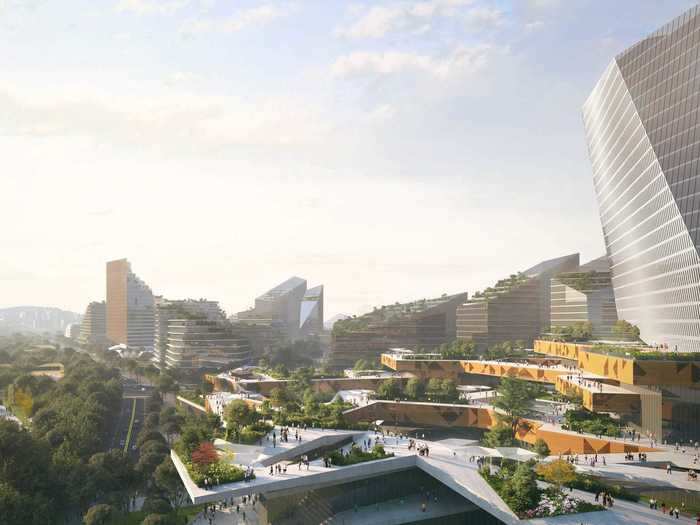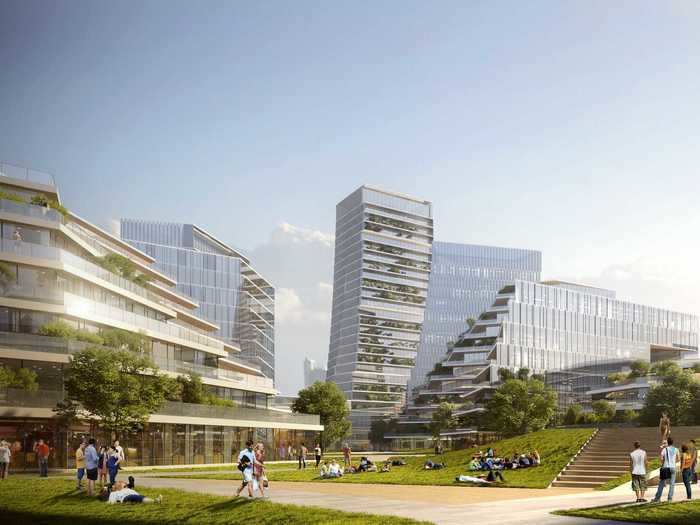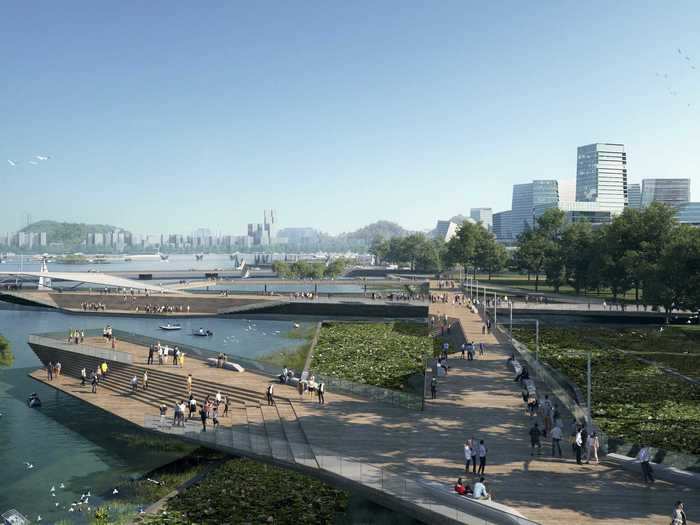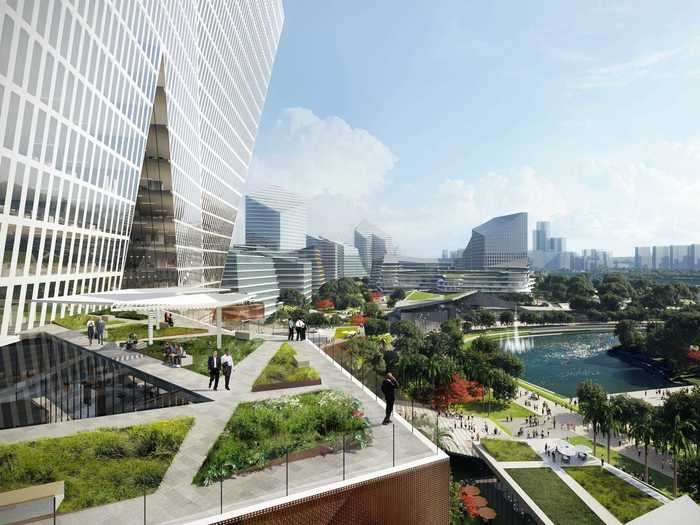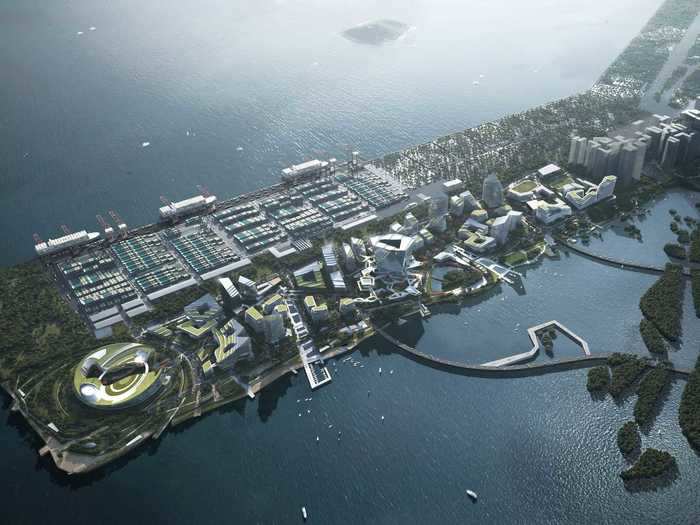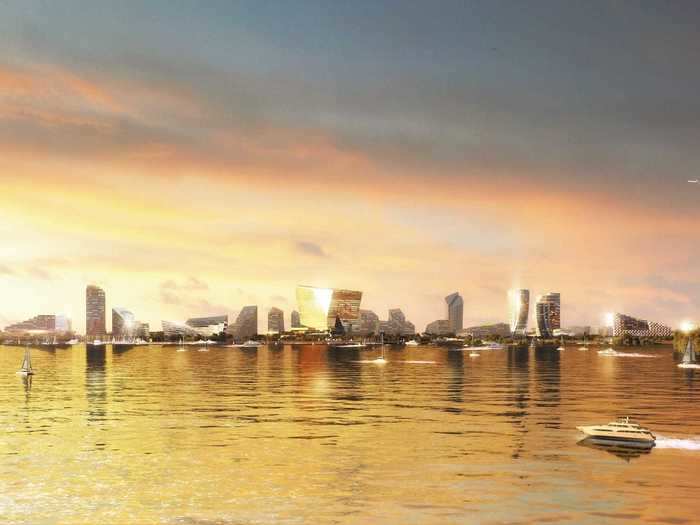Internet goliath Tencent is building a city the size of Midtown Manhattan in China, complete with grass-covered rooftops, offices, and apartments. Here's what Net City will look like.
Katie Canales
A rendering of Net City.NBBJ
- Chinese internet company Tencent is building a 320-acre city in China over the next seven years as a work-life campus for employees.
- Net City will have offices, residences, schools, retail, open spaces, and grass-covered rooftops.
- Tencent is one of the most recent tech firms to delve into master-planned communities.
- The now-abandoned Quayside in Toronto was supposed to be a $900 million high-tech city of the future for Google's sister company before "economic uncertainties" spelled its end in May.
Chinese internet behemoth Tencent is building a city the size of Midtown Manhattan in China for employees, complete with offices, residences, schools, and retail spaces.
Designed by NBBJ — an architecture firm with designs for Google, Samsung, and Amazon under its belt — Net City will be built from the ground up on 320 acres in Shenzhen, China, and will be completed in seven years, as The Wall Street Journal reported.
The master-planned city project is one of the latest launched by a tech company that proposes providing a sprawling campus where employees can work, live, and play.
Here's what the futuristic city would look like.
READ MORE ARTICLES ON
Popular Right Now
Popular Keywords
- India’s wearables market decline
- Vivo V40 Pro vs OnePlus 12R
- Nothing Phone (2a) Plus vs OnePlus Nord 4
- Upcoming smartphones launching in August
- Nothing Phone (2a) review
- Current Location in Google
- Hide Whatsapp Messages
- Phone is hacked or not
- Whatsapp Deleted Messages
- Download photos from Whatsapp
- Instagram Messages
- How to lock facebook profile
- Android 14
- Unfollowed on Instagram
Advertisement

